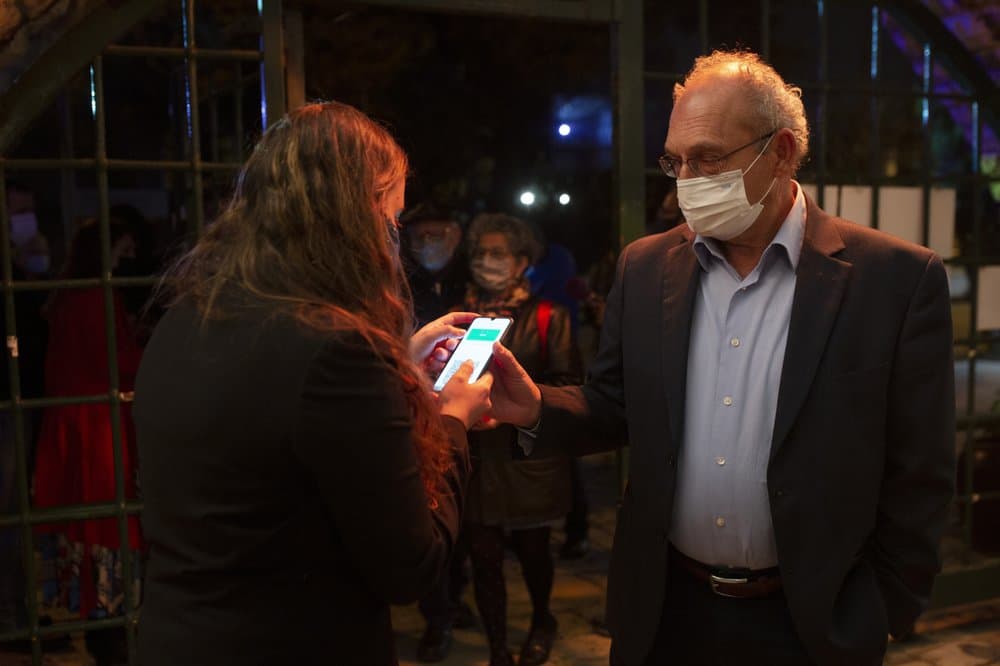LEICESTER, United Kingdom – So-called “vaccine passports” could lead to an “unethical coercion” of citizens, according to the head of the UK’s leading Catholic bioethics center.
Prime Minister Boris Johnson has floated the idea of a “COVID-status certification” to help reopen the British economy and reduce restrictions on social contact.
Nicknamed “vaccine passports,” the policy would require people prove they have received a vaccine in order to enter certain places of public accommodation, such as pubs and restaurants.
Over 30 million people in the UK have received the first dose of COVID-19 vaccine, with everyone over 50 being invited to be vaccinated. The government says everyone over 18 will be offered their first dose of the vaccine by mid-July. Only around 3 million people have received the second dose, since the UK is giving a 11–12-week gap between the two doses, as recommended for the vaccines approved in the country.
England has taken a cautious approach to lifting lockdown restrictions imposed in January. Stay-at-home instructions were only lifted on Monday, allowing for up to 6 people or 2 households to meet outdoors. Shops and outdoor eateries will be allowed to reopen on April 12. The government says all legal limits on social contact will be lifted on June 21, if things go according to plan.
Government officials say vaccine passports could ease the opening of venues, especially theaters and sports stadiums, where people are packed together for long periods of time.
In a submission to a government consultation on the proposal, Professor David Albert Jones, the head of the Oxford-based Anscombe Bioethics Centre, said vaccines must be taken with “free and informed consent,” and said vaccine passports could violate this principle.
The bioethicist said the first thing to consider is that vaccines are medicines, and are subject to the ethical requirements for medical treatment.
“It is the person who bears the immediate risk of receiving or of not receiving the treatment and hence, if a person is able to provide consent then medical treatment must not be given without obtaining consent. Furthermore, the validity of this consent is undermined if it is coerced,” he said.
Jones acknowledged that vaccines are also public health interventions, aimed at protecting not only the individual but also the health of others and of the population as a whole, but insisted medical ethics still apply.
“Nevertheless, unlike other public health interventions, such as hygiene and sanitation, restrictions on smoking, restrictions on the advertising of alcohol and of unhealthy foods, provision of health information, access to places to exercise, and, where necessary, restrictions on movement such as self-isolation, shielding and quarantine restrictions, vaccines act within the body. Imposing vaccines without consent would violate the right to bodily integrity,” he said.
Jones also acknowledged that religious leaders, including Pope Francis, have said that people have a “duty” to be vaccinated to protect the general population.
“It is important to distinguish the question of whether people have a duty to do something and the question of whether the state has a right to enforce such a duty. For example, it may well be that wealthy individuals have an ethical duty to donate to charity, especially in a time of great need. However, what distinguishes charitable donation from taxation is precisely that charitable donations are voluntary and are not compelled by the state,” he said.
He explained the issue of “certification” of vaccination is “more complex” than mandatory vaccination because it not about the mandating of behavior, under threat of legal sanction, but is about making access to goods or services conditional on behavior.
If used narrowly – such as in relation to international travel or certain industries – they can be licit, but he said the vaccine passport proposal would “relate to a wide range of ordinary activities of social and economic life.”
“There comes a point where ‘encouragement’ becomes coercion and where exclusion from benefits becomes punitive. The more extensive the scope of these measures, in relation to activities included and people affected, more likely they are to constitute unethical coercion,” Jones said.
He also expressed fears that they would disproportionately impact different populations, alluding to the fact that minority communities in Britain have been less likely to seek to be vaccinated.
“It is also clear that vaccine reluctance is more of a challenge within some communities, some of which already suffer from social and economic inequality and discrimination. To impose a divisive policy that would fall more heavily on these communities requires strong proportionate reason in comparison to less divisive means of encouraging vaccine take up and in comparison with other means to open up the economy safely,” he said.
Follow Charles Collins on Twitter: @CharlesinRome














